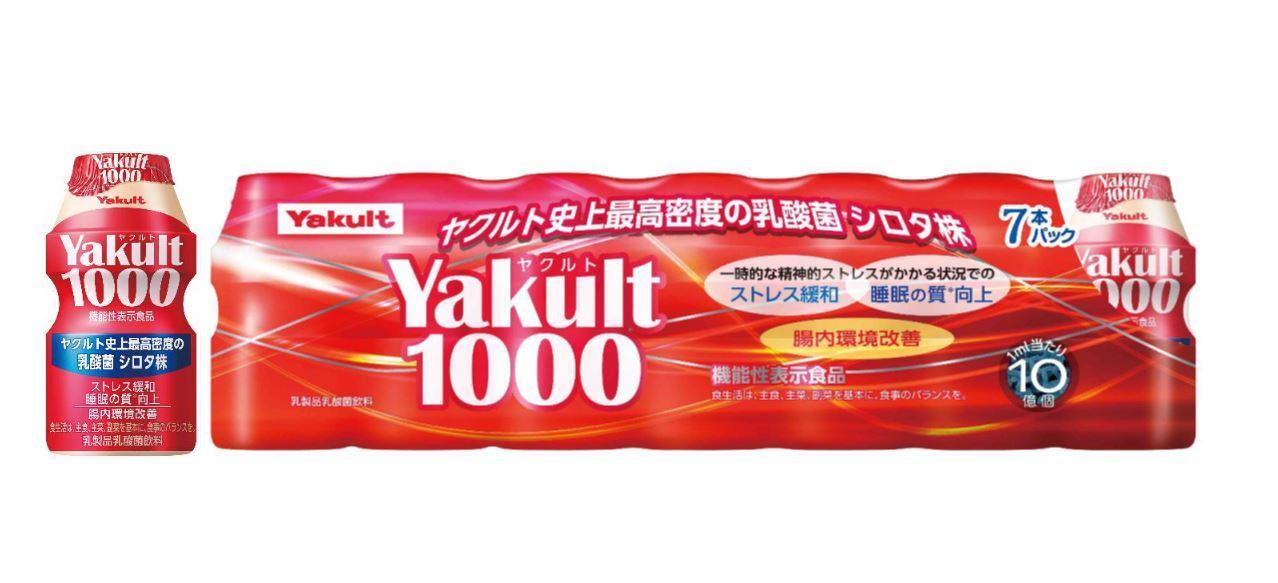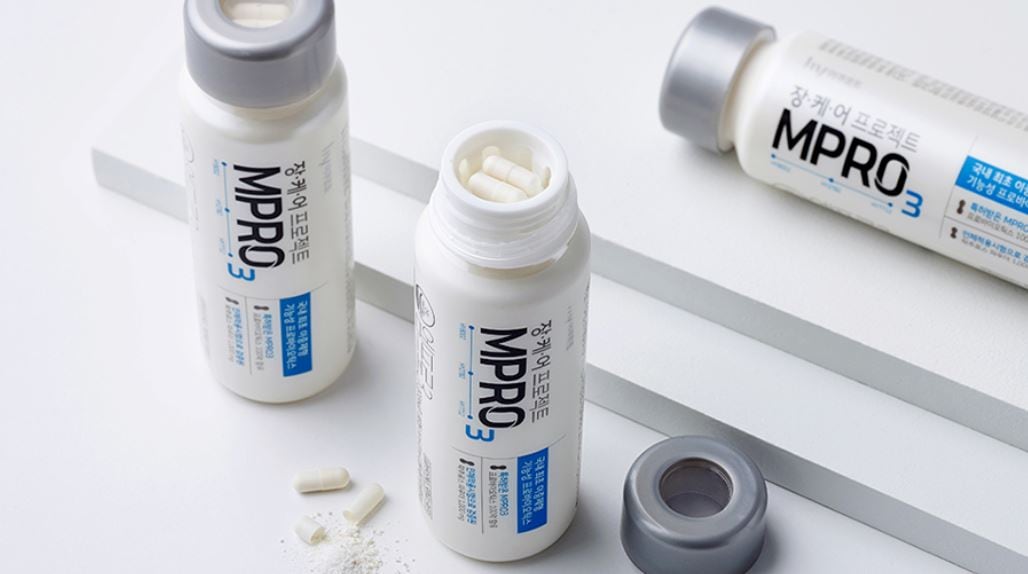First launched in October 2019 in Tokyo and the six other prefectures of the Kanto region, Yakult 1000 will start retailing nationwide in April, through the main sales channel of home delivery by Yakult Ladies.
According to Hideki Maruyama from Yakult Honsha’s public relations department, the company has set a target of selling 1.1 million bottles of Yakult 1000 daily.
Yakult’s Q3 2020 performance reported that the company sold more than seven million bottles of its fermented milk beverages daily, an increase of 4% from Q3 2019.
Within the fermented milk beverage category, New Yakult (flagship product) saw a 3.6% increase in bottles sold, Yakult 400 dropped 4%, and the others category grew the most at 173%. The latter category comprises of Yakult 1000, Yakult Five, Synbiotic Yakult W, Yakult W, and Mainichi Nomu Yakult 365.
Yakult 1000 contains 100 billion L. casei strain Shirota, which is the greatest number of probiotics across all its fermented milk beverages.
Its flagship beverage in Japan (New Yakult) contains 20 billion of L. casei strain Shirota, while its synbiotic drink (Yakult 400W) contains 40 billion L. casei strain Shirota along with 5g of prebiotics (galacto-oligosaccharide).
Science-backed
Yakult 1000 was the first product from Yakult Honsha recognised as a food with function claim (FFC).
In one study published in 2016 in the Applied and Environmental Microbiology journal, researchers found that consuming fermented milk containing L. casei strain Shirota could relieve stress-induced abdominal dysfunction in healthy medical students.
The study was conducted on medical students who were tasked to consume the test product daily for eight weeks before an examination. Findings suggested that L. casei strain Shirota may prevent the onset of stress-associated abdominal symptoms and a good change of gut microbiota in healthy medical students.
Another study published in 2016 in the Neurogastroenterology & Motility journal, also reported that L. casei strain Shirota could relieve stress-associated symptoms such as anxiety in healthy medical students under academic examination stress.
Subjects received L. casei strain Shirota-fermented milk or placebo daily for eight weeks prior to taking a national standardised examination. Scores on subjective anxiety, salivary cortisol levels, and the presence of physical symptoms during the intervention were analysed.
Academic stress-induced increases in salivary cortisol levels and the incidence rate of physical symptoms were significantly suppressed in the L. casei strain Shirota group compared to the placebo group.
These findings suggest that L. casei strain Shirota may prevent hypersecretion of cortisol and physical symptoms under stressful conditions, and may relieve stress-associated symptoms by modulating the gut–brain interaction in humans.
In assessing sleep effects, a study published in the Beneficial Microbes journal in 2017, found that daily consumption of 100 ml of L. casei strain Shirota-fermented milk may help to maintain sleep quality under psychological stress.
The double-blind, placebo-controlled trial was conducted in healthy medical students exposed to academic examination stress who consumed the test product eight weeks prior to and three weeks after a national standardised examination. The trial was repeated over two consecutive years in different groups of students, and the data were pooled.
The test group saw significant positive effect on sleep duration, stage 3 non-REM sleep, and sleep intensity.
There are no export plans for Yakult 1000 at the moment.
Besides its fermented milk beverages, Yakult also has a shelf-stable multi-probiotic supplement which contains 100 million of L. casei strain Shirota and Bifidobacterium breve strain Yakult each.




